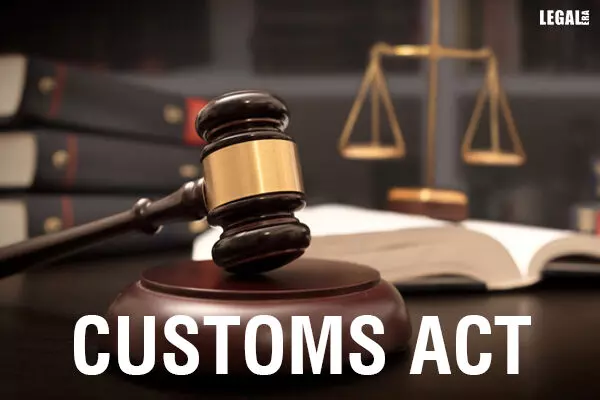- Home
- News
- Articles+
- Aerospace
- Artificial Intelligence
- Agriculture
- Alternate Dispute Resolution
- Arbitration & Mediation
- Banking and Finance
- Bankruptcy
- Book Review
- Bribery & Corruption
- Commercial Litigation
- Competition Law
- Conference Reports
- Consumer Products
- Contract
- Corporate Governance
- Corporate Law
- Covid-19
- Cryptocurrency
- Cybersecurity
- Data Protection
- Defence
- Digital Economy
- E-commerce
- Employment Law
- Energy and Natural Resources
- Entertainment and Sports Law
- Environmental Law
- Environmental, Social, and Governance
- Foreign Direct Investment
- Food and Beverage
- Gaming
- Health Care
- IBC Diaries
- In Focus
- Inclusion & Diversity
- Insurance Law
- Intellectual Property
- International Law
- IP & Tech Era
- Know the Law
- Labour Laws
- Law & Policy and Regulation
- Litigation
- Litigation Funding
- Manufacturing
- Mergers & Acquisitions
- NFTs
- Privacy
- Private Equity
- Project Finance
- Real Estate
- Risk and Compliance
- Student Corner
- Take On Board
- Tax
- Technology Media and Telecom
- Tributes
- Viewpoint
- Zoom In
- Law Firms
- In-House
- Rankings
- E-Magazine
- Legal Era TV
- Events
- Middle East
- Africa
- News
- Articles
- Aerospace
- Artificial Intelligence
- Agriculture
- Alternate Dispute Resolution
- Arbitration & Mediation
- Banking and Finance
- Bankruptcy
- Book Review
- Bribery & Corruption
- Commercial Litigation
- Competition Law
- Conference Reports
- Consumer Products
- Contract
- Corporate Governance
- Corporate Law
- Covid-19
- Cryptocurrency
- Cybersecurity
- Data Protection
- Defence
- Digital Economy
- E-commerce
- Employment Law
- Energy and Natural Resources
- Entertainment and Sports Law
- Environmental Law
- Environmental, Social, and Governance
- Foreign Direct Investment
- Food and Beverage
- Gaming
- Health Care
- IBC Diaries
- In Focus
- Inclusion & Diversity
- Insurance Law
- Intellectual Property
- International Law
- IP & Tech Era
- Know the Law
- Labour Laws
- Law & Policy and Regulation
- Litigation
- Litigation Funding
- Manufacturing
- Mergers & Acquisitions
- NFTs
- Privacy
- Private Equity
- Project Finance
- Real Estate
- Risk and Compliance
- Student Corner
- Take On Board
- Tax
- Technology Media and Telecom
- Tributes
- Viewpoint
- Zoom In
- Law Firms
- In-House
- Rankings
- E-Magazine
- Legal Era TV
- Events
- Middle East
- Africa
Bombay High Court: Customs Authorities Cannot Seal Premises under Section 105

Bombay High Court: Customs Authorities Cannot Seal Premises under Section 105
States that the power to ‘search’ cannot be equated with the power to lock the site
The Bombay High Court has held that customs authorities do not possess the explicit power to seal premises under Section 105 of the Customs Act.
It emphasized that sealing the location was a severe action, impacting a person's substantive rights to possess and use the property (be it for business or other purposes), as it directly affects their constitutional rights as guaranteed under Article 300A of the Constitution of India.
The petitioner, Narayan Power Solutions, had sought urgent relief to have its office premises unsealed. It argued that the Assistant Commissioner of Customs did not have the authority and jurisdiction to seal its office premises under the Customs Act, especially without providing any prior notice.
The division bench of Justice GS Kulkarni and Justice Jitendra Jain held that the power to ‘search’ cannot be equated with the power to ‘seal’ premises. Sealing the premises was a significant and drastic action, only to be exercised if explicitly authorized by the law.
The court referred to the R.S. Seth Gopikrishan Agarwal vs R.N. Sen, Assistant Collector case, wherein the Supreme Court provided an interpretation of Section 105 of the Customs Act.
The apex court had observed that the purpose of the Section was to authorize searches for two specific categories: goods liable to be confiscated and documents relevant to any proceeding under the Act.
The judges stressed that granting customs authorities the power to seal business premises would infringe upon the fundamental right to carry on business, protected under Section 19(1)(g) of the Indian Constitution. They stated that the legislature intentionally excluded the authority to seal when framing the powers under Section 105.
Thus, the bench ruled that the customs authorities should unseal the office premises in the presence of the petitioner's representatives. This approach would allow the customs authorities to conduct the search of the office premises while ensuring that only the relevant material is the focus.



